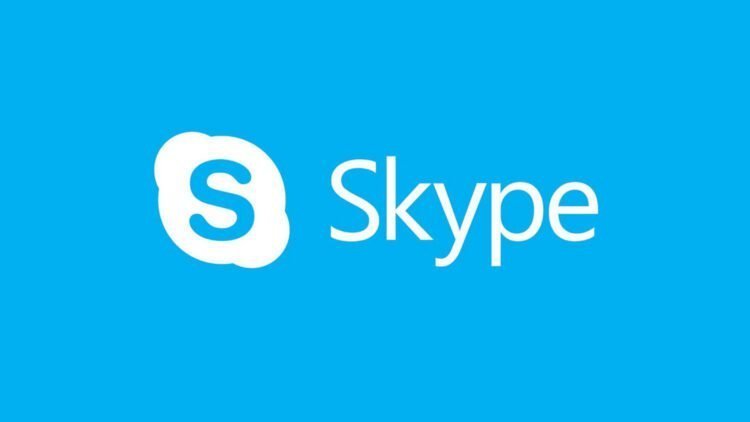Starting a new business is an exhilarating journey filled with both opportunities and challenges. Among the critical hurdles every startup must overcome is the efficient management of finances. A reliable accounting system plays a pivotal role in simplifying this task, allowing entrepreneurs to focus on innovation and growth. In this comprehensive guide, we will delve into the top accounting software solutions for startups, emphasizing their ease of use, essential features, and potential for scalability.
Why Startups Need Accounting Software
Accounting software is not merely a tool reserved for large enterprises; it is an indispensable asset for startups as well. Here’s why these solutions are crucial for burgeoning businesses:
Streamlined Financial Management
In the dynamic world of startups, time is of the essence. Automating financial tasks such as invoicing, expense tracking, and payroll through accounting software can significantly streamline operations. This automation not only saves valuable time but also minimizes the risk of human error, ensuring accuracy in financial data. By reducing the administrative burden, startup owners can concentrate on other vital aspects of their business, such as product development and customer acquisition.
Moreover, automated systems enhance consistency across financial processes. Whether it’s generating invoices or reconciling bank statements, the uniformity brought by automation ensures that startups maintain a professional approach. As a result, businesses can project a reliable image to clients and investors, which is crucial for building trust and credibility.
Real-Time Financial Insights
In today’s fast-paced business environment, having access to real-time financial data is a game-changer for startups. Cloud-based accounting software provides immediate insights into a company’s financial health, enabling swift decision-making. This capability is especially vital for startups that operate in highly competitive markets, where quick pivots and adaptations can be the difference between success and failure.
Real-time insights allow entrepreneurs to monitor cash flow, track expenses, and assess profitability with precision. This transparency into financial operations facilitates informed decisions, helping startups allocate resources more effectively and identify potential areas for cost-saving. Additionally, real-time data can aid in forecasting and strategic planning, equipping startups with the foresight needed to navigate future challenges.
Scalability
The growth trajectory of a startup can be unpredictable, necessitating solutions that can adapt and expand alongside the business. Many accounting software options offer scalable features that cater to evolving business needs. As startups grow, their financial complexities increase, requiring more advanced tools and functionalities.
Scalable accounting software supports this growth by offering modular features that can be added as needed. Whether it’s incorporating multi-currency transactions, expanding to handle a larger volume of transactions, or integrating with additional business tools, scalable solutions ensure that startups are not constrained by their accounting systems. This flexibility is crucial for maintaining efficient financial operations as the business landscape changes.
Features to Look for in Accounting Software
Selecting the right accounting software involves careful consideration of the features that will best support your startup’s needs. Key features to focus on include:
User-Friendly Interface
The ease of use is a critical factor when choosing accounting software, especially for team members who may lack a financial background. A user-friendly interface ensures quick adoption and minimizes the learning curve, allowing team members to operate the software efficiently from the outset.
Intuitive navigation and clear instructions are key components of a user-friendly interface. Software that offers customizable dashboards, easy-to-understand analytics, and straightforward data entry processes will enhance user experience. Additionally, visual aids such as graphs and charts can help non-financial staff comprehend complex financial data, further facilitating smooth operations.
Integration Capabilities
In a digital world where businesses rely on multiple software tools, integration capabilities are crucial for seamless operations. The best accounting software should integrate effortlessly with other essential business tools, such as CRM systems, payment processors, and e-commerce platforms.
Effective integration ensures that data flows smoothly across different systems, reducing the need for manual data entry and minimizing the risk of errors. This connectivity enhances operational efficiency by synchronizing business processes, providing a unified view of the business’s financial health. Moreover, integrated systems can offer comprehensive insights, combining financial data with customer and sales information for a holistic view of business performance.
Customizable Reporting
Financial reports are vital for assessing a startup’s performance and planning for the future. Accounting software with customizable reporting features enables startups to generate tailored reports that align with their specific requirements. These reports can provide detailed insights into cash flow, profitability, and other critical financial metrics.
Customizable reporting allows startups to focus on the metrics that matter most to them. Whether it’s tracking sales performance, analyzing expenses, or monitoring inventory levels, customizable reports provide the flexibility to highlight key areas of interest. This tailored approach ensures that startups have the information they need to make informed strategic decisions.
Cost-Effectiveness
For startups often operating on tight budgets, cost-effectiveness is a crucial consideration when selecting accounting software. It’s essential to find a solution that offers a good balance of features and affordability, with pricing plans that align with the startup’s financial constraints.
Free or low-cost software options can be attractive, but it’s important to evaluate whether they provide the necessary features to support business operations effectively. In some cases, investing in a more comprehensive paid solution may offer long-term benefits, providing advanced functionalities that can drive growth and efficiency. Startups should carefully assess their needs and budget to determine the most cost-effective solution for their circumstances.
Top Accounting Software Solutions
Numerous accounting software solutions cater to the unique needs of startups. Here are some of the top options:
QuickBooks Online
QuickBooks Online stands out as one of the most popular accounting software choices, known for its comprehensive features and user-friendly interface. It offers an array of tools for invoicing, expense tracking, and reporting, making it a versatile choice for startups.
Key Features:
- Automated Invoices and Receipts: QuickBooks streamlines the billing process by automating invoice generation and receipt tracking, reducing manual workload.
- Real-Time Collaboration: Teams can collaborate seamlessly, accessing financial data in real-time, which fosters transparency and coordination.
- Integration with Over 650 Business Apps: Its extensive integration capabilities ensure connectivity with a wide range of third-party applications, enhancing functionality and efficiency.
Xero
Xero is another excellent choice for startups, offering robust features and a clean, intuitive interface. It is particularly well-suited for startups seeking cloud accounting software with strong multi-currency capabilities.
Key Features:
- Dashboard for Real-Time Financial Monitoring: Xero provides a comprehensive dashboard that offers insights into financial performance, aiding quick decision-making.
- Extensive Third-Party App Marketplace: Its vast app marketplace allows businesses to tailor Xero to their specific needs, enhancing operational flexibility.
- Payroll Integration: Xero’s integrated payroll feature simplifies employee payments, ensuring accuracy and compliance.
FreshBooks
FreshBooks is designed with small businesses in mind and is particularly popular among freelancers and service-based startups. Its focus on simplicity makes it easy to use while still offering a range of essential accounting features.
Key Features:
- Time Tracking and Project Management Tools: FreshBooks offers tools for tracking billable hours and managing projects, essential for service-based businesses.
- Automated Payment Reminders: It helps maintain cash flow by sending automated reminders for overdue payments, reducing the need for manual follow-ups.
- Customizable Invoices: Businesses can create professional invoices tailored to their brand, enhancing client interactions and ensuring clear communication.
Wave
Wave is a free accounting software solution that offers essential features for startups on a budget. It is especially appealing to small businesses that need basic accounting tools without the expense.
Key Features:
- Free Invoicing and Receipt Scanning: Wave provides essential accounting features without cost, making it ideal for budget-conscious startups.
- Built-In Payroll (Additional Cost): While payroll features come at an extra cost, they offer comprehensive functionality for managing employee payments.
- Easy-to-Use Dashboard: Its intuitive dashboard simplifies financial oversight, allowing startups to focus on core business activities.
Choosing the Right Software
Selecting the right accounting software for your startup requires a thorough evaluation of your specific needs and budget. Here’s a step-by-step guide to help you make an informed decision:
Assess Your Needs
Begin by identifying the specific accounting tasks that need management. Consider the volume of transactions, the complexity of business operations, and any industry-specific requirements that may influence your choice of software. Understanding these needs will guide you in selecting a solution that aligns with your business objectives.
Compare Features
Review the features offered by each software solution and compare them against your identified needs. Pay close attention to integration capabilities, ease of use, and the availability of customer support. A comprehensive comparison will help you identify the software that offers the best fit for your startup’s unique requirements.
Consider Your Budget
Determine your budget for accounting software and explore the pricing plans offered by each solution. While free options like Wave are available, it’s important to weigh the benefits of paid solutions that may offer more advanced features. Balancing cost with functionality is key to finding a solution that supports your business without straining financial resources.
Test the Software
Many accounting software providers offer free trials, allowing you to test the software before making a commitment. Take advantage of these trials to evaluate the software’s performance, ease of use, and compatibility with your business needs. Testing the software firsthand ensures that it meets your expectations and can support your business effectively.
Conclusion
Selecting the best accounting software for startups is a crucial step in establishing a strong financial foundation for your business. By choosing a solution that offers the right features, scalability, and ease of use, you can streamline your financial management and focus on growing your startup. Whether you choose QuickBooks Online, Xero, FreshBooks, or Wave, investing in the right accounting software will pay dividends in the long run, supporting your business as it navigates the challenges and opportunities of the startup journey.




































